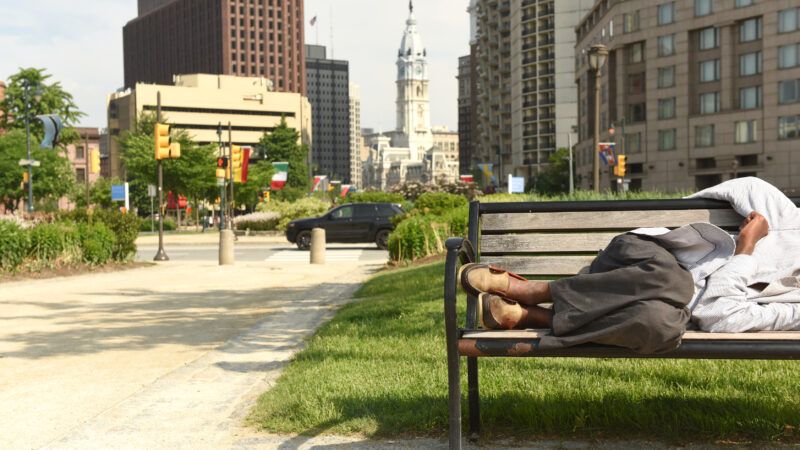When the Government Makes Poverty Worse
A Pennsylvania survey suggests that taxes are often a major barrier to economic security, ranking ahead of credit card debt and student loans.

For individuals struggling to make ends meet, the government might be causing more problems than it is solving.
As part of a new report released Monday, a survey of more than 1,000 low-income Pennsylvanians found that taxes are often a major barrier to economic security—ranking ahead of more commonly discussed problems such as credit card debt and student loans. Among those surveyed, all of whom have incomes below 200 percent of the federal poverty level (about $53,000 annually for a family of four), the average respondent reported paying $4,575 per year in taxes.
Elizabeth Stelle, director of policy analysis for the Commonwealth Foundation, the pro-market think tank that published the report, says the data should prompt officials to rethink some of the root causes of poverty in the state and across the country.
"Before we start talking about more ways to alleviate the symptoms of poverty," Stelle says, "we need to take a step back and think about what obstacles the government has in place right now that are holding back people that are limiting prosperity."
That's not the only common myth that the new report aims to bust. Here's another: Most poor Pennsylvanians (63 percent) work or are currently seeking a job. Meanwhile, the report also found that poverty is not exclusively a crisis for cities and other urban areas. In fact, of the five Pennsylvania counties with the highest poverty rates, four are found in sparsely populated rural areas (the fifth is Philadelphia).
Poverty in Forest County—deep in the wilderness of the Allegheny Mountains southeast of Erie—is far different from poverty in Philadelphia. Stelle sees that as an argument against one-size-fits-all government-based poverty reduction schemes, which can fail to take into account the needs of individuals in such diverse economic environments.
Though the report surveys only a single state, Pennsylvania is a useful political and economic microcosm for the country as a whole. It has urban pockets, sprawling and prosperous suburbs, an industrial legacy, and widespread rural areas that are often overlooked. It remains a crucial swing state and a political bellwether—its state legislature is currently enduring a weeks-long crisis that makes Speaker of the House Kevin McCarthy's election look tame by comparison. As such, it's an important laboratory of democracy and a state where shifting views on policy can have national implications.
Pennsylvania has increased spending on social welfare programs over the past few decades, but the poverty rate in the state has remained stubbornly flat, the report shows. The paper asks officials to consider a counterfactual history: If Pennsylvania had enacted a rule in 2003 that capped future government spending increases at a combination of inflation and population growth (and had returned the surplus to taxpayers), the average low-income resident of the state would have an extra $20,000 in the bank today, simply due to the lower tax burden.
That's a messier solution to poverty than drawing up government programs that specifically target people living in certain conditions. But it's one that would empower every individual in the state to make their own decisions about how to pursue prosperity.
"Governments are not so good about customizing programming and figuring out what's going to help you and your individual situation," she says. "If you want to help everybody, just give them more economic freedom."
